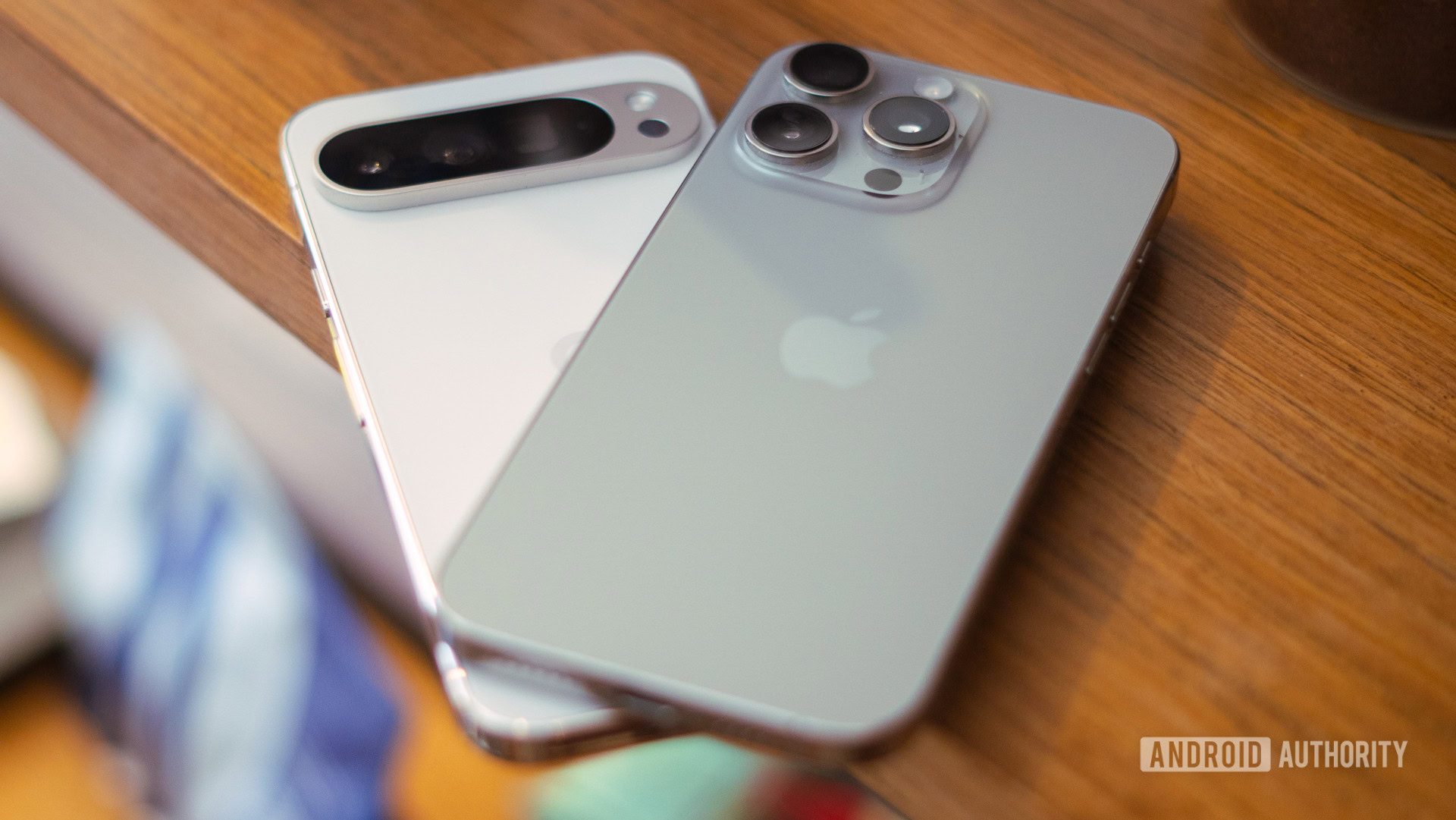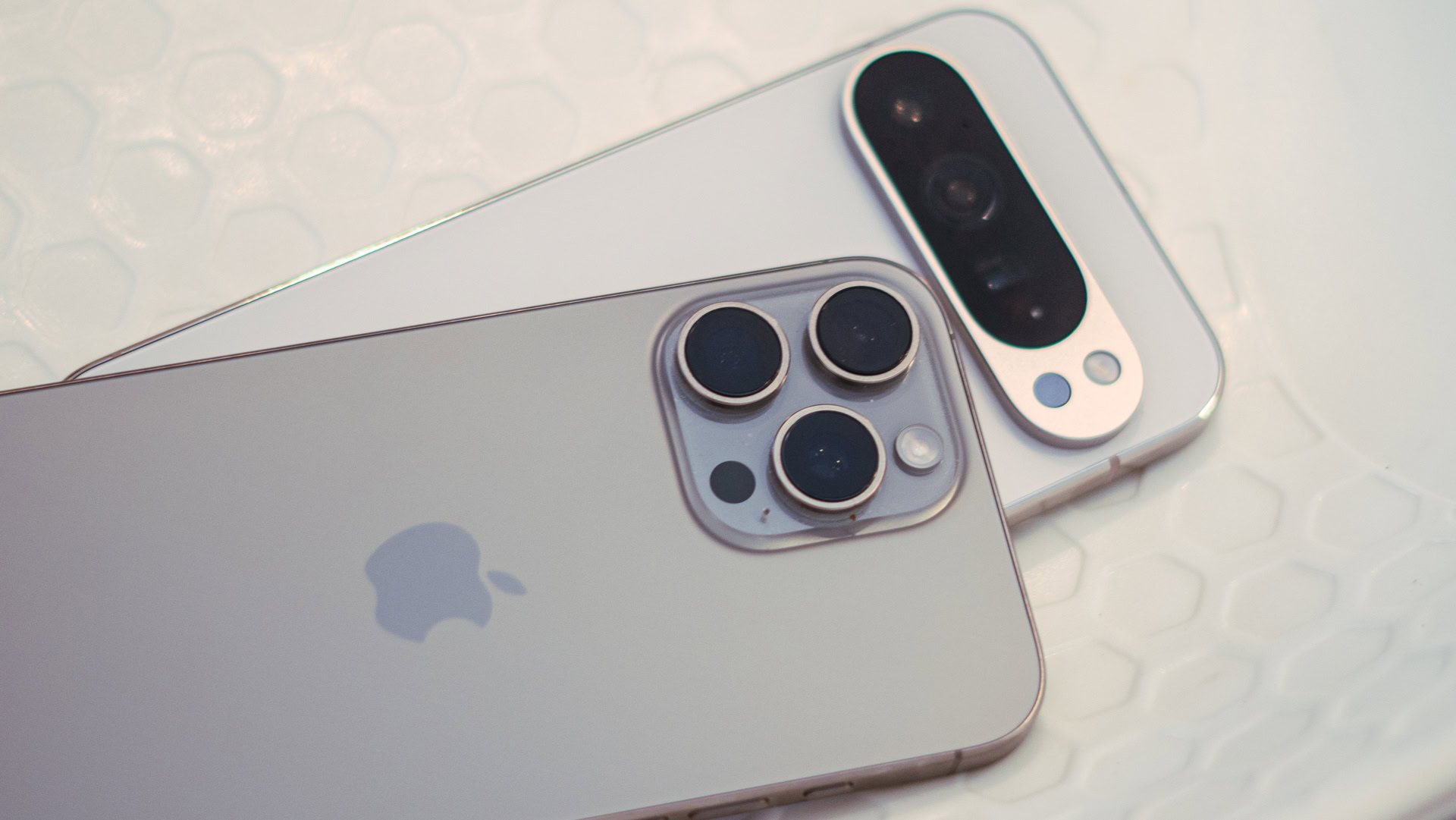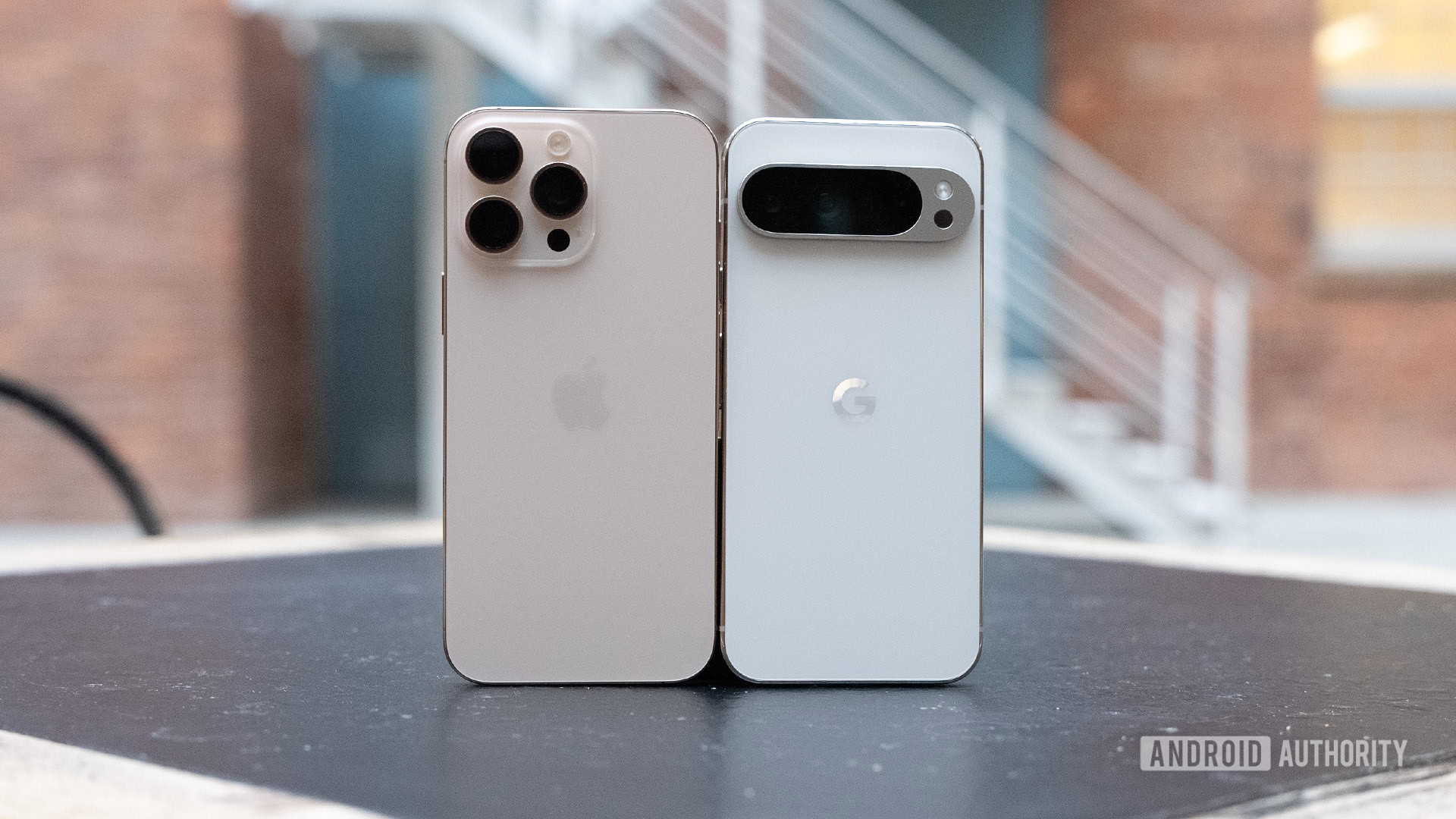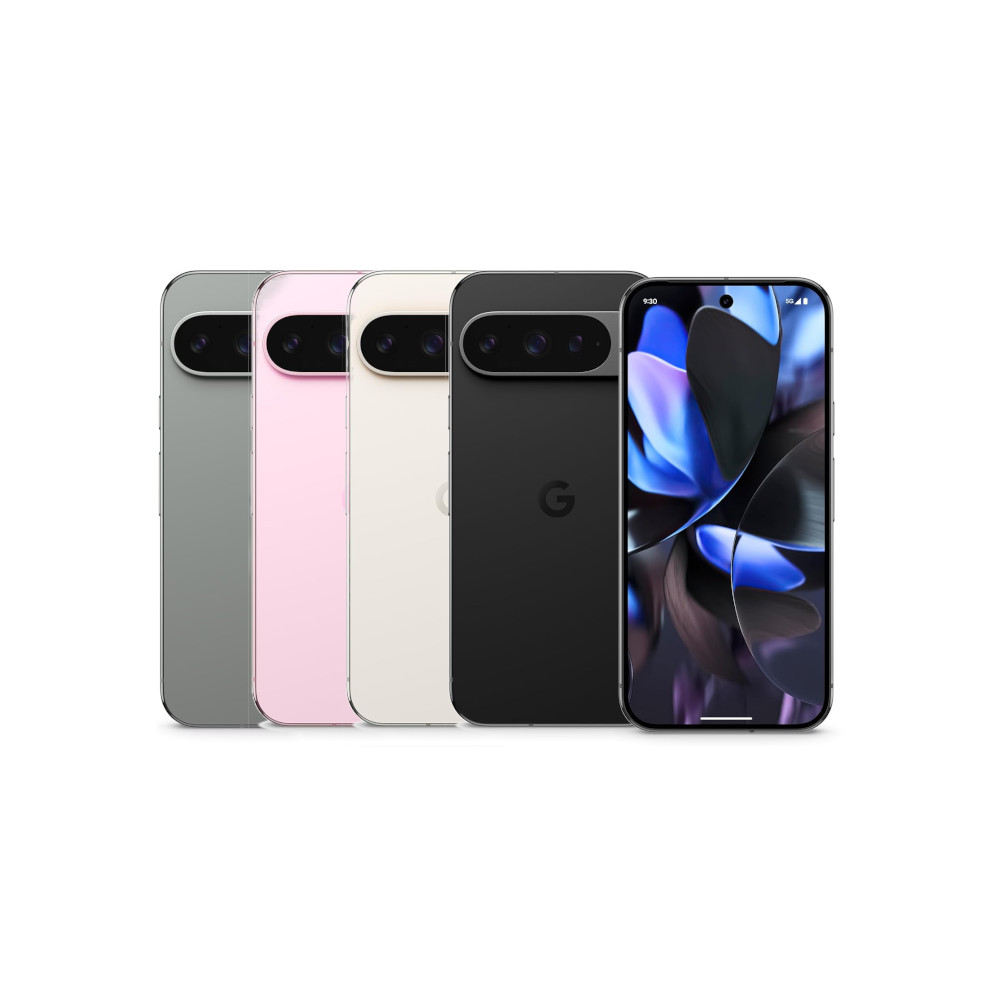The iPhone 16 Pro’s photography styles turned me off the Pixel 9

Dhruv Bhutani / Android Authority
If the success of the Fuji X100 series of cameras and the resurgence of point-and-shoot cameras is anything to go by, we’re back in the era of vibes taking precedence over pinpoint accuracy. It’s really no surprise either. While manufacturers battle for ‘natural’ looking images to take up the mantle of the best camera smartphone, actual users overwhelmingly tend to use filters ranging from Instagram’s built-in options to VSCO and Lightroom. But what if there was a way to achieve a middle ground?
Filters built into phone cameras aren’t new. Xiaomi, vivo, and many other brands had the feature for years. But the iPhone 16 series and its Photographic Styles do it differently, and I’m here for it. Over the last month, I’ve been dual-wielding the iPhone 16 Pro Max and the Pixel 9 Pro, and nine out of ten times, it is the iPhone that I opt for when it’s time to take a photograph. Simply put, I’ve been having way more fun shooting with the iPhone. Here’s why.
Do you use filters built into your phone’s camera app?
17 votes
What are Photography Styles on the iPhone 16 series?

Dhruv Bhutani / Android Authority
Unlike previous iterations of Photographic Styles where the effect was effectively baked into your photograph, the version shipping with iOS 18 for the iPhone 16-series offers a lot more variety. It allows you to dial in settings like midtone adjustment, contrast, and even how much of the effect you want blended into your image.
Photography Styles or filters aren’t new, but Apple’s implementation is one of my favorites so far.
Like vivo phones, the tonal adjustments are baked into the processing pipeline resulting in better-looking shots. But unlike many of the other smartphones that have similar features, the ability to swap out the additions while editing photos or remove them altogether is brilliant. But the reason I’ve been using it has a lot to do with vibes rather than technical achievement.
Creativity vs Accuracy: The Photography Styles debate

Dhruv Bhutani / Android Authority
At risk of dating myself, I come from the analog era of photography, and film has a special place in my heart. Before the ability to mangle a photo into any shape and form with AI became commonplace, a photograph was exactly what you shot. Photographic Styles on the iPhone give me that same feeling of loading up a roll of Portra, Velvia, or even expired film — with much-needed modern conveniences like the ability to remove that analog-inspired sheen and go back to what the scene looked like.
I’ve been rediscovering the joy of photography by dialing in a Photography Style for the day and sticking to it.
I’ve been rediscovering the joy of photography by effectively selecting a customized style based on where I am, how the weather is, and, just as important, my mood. Warm autumn vibes had me switching to the rose gold style with my own custom changes, while a trip to the arcade had me turning up the contrast-heavy dramatic setting. The goal is not objective accuracy but feel.
For example, I shot this photograph of the local metro line passing through the middle of a park while out for a run. The Pixel 9 Pro nails the image in terms of accuracy and sharpness. The iPhone shot, on the other hand, has much more feel. To me, the warmer tones and lifted shadows evoke memories of a bygone era and the effect of urban sprawl on local green spaces. Objectively, the Pixel is the better shot, and the iPhone lets you capture that too, but Photographic Styles give you the creative freedom to express emotion through your shots.
Continuing on the theme of nostalgia, I took a walk past the local antique store. This afternoon, I was interested in shooting images with elevated exposure and shadow levels, additional warmth, and a touch of matte. The ‘cozy’ style came in clutch to elevate the feel and warmth of artifacts. The elevated saturation, warm cast, and ever-so-slightly soft look go a long way toward replicating what the space feels to me versus what it actually looks like.
Heading to the cafe next door, the same photographic style continued the theme of a warm cosy afternoon and added to otherwise very standard food photography. Is the image technically better? No, of course not. But to my eyes, the interpretation better interprets what the afternoon felt like over the sterile shot from the Pixel even though the latter did a better job at balancing highlights and shadows, offered more sharpness.
With a bit of a winter chill starting to settle in over Delhi, I’d been out and about capturing images with a cooler, and more dramatic photography style. The punched-up highlights, and pushed-down shadows take what is otherwise a very nice-looking snapshot and turn it into an image i’d be proud to share on social media, or even use as a wallpaper.
For the next set of shots, I headed over to the local arcade. The bright and neon-heavy environment offers enough contrast to begin with. However, I switched to yet another style that elevated the saturation levels and added a pink tinge to the shots for the perfect 80s nostalgia. Look, you can always add these effects in post to any image, including those shot on the Pixel, but there’s something special about capturing the moment as you envision it, right there and then.
The difference between a snapshot and photography is the framing, composition, and feeling that you convey through it. On the right-hand side, the Pixel 9 Pro delivers a perfect representation of what the setting really was. In fact, I’d say that the Pixel 9 Pro does it better than the iPhone in some ways, with excellent control over HDR and a pleasingly sharp shot. The first shot reminds me of my childhood playing hide and seek between trees, while the second interpretation is decidedly more moody. The high-contrast black-and-white image, on the other hand, could serve up a million interpretations. The Pixel’s shot, on the other hand, does none of that. It’s the objective truth represented exactly how it is.
Is Photography Styles reason enough to be a system seller?

Paul Jones / Android Authority
Photography Styles on the iPhone 16 Pro are the most fun I’ve had with photography in a while because of that instantaneous ability to turn the setting into a warm Indian summer afternoon, gritty film noir, or even amped-up 80s cyberpunk.
The ability to switch up the style after the fact is great, but Apple’s decision to lean into Fuji-style recipes is another incredible addition that lets you share these settings and achieve the same creative look as another photographer. At the moment, you can only share numerical values that you have to dial in manually, but I’d love to see a more granular interface to tweak the baked-in styles to suit your needs. Just like Lightroom presets, it is baked into the camera experience.
Photography Styles might not be reason enough to switch your phone, but it makes photography a lot more fun.
I’m well aware that adding what is essentially an advanced filter to the imaging pipeline isn’t exactly new, but like most things Apple, the implementation is what sells it. Should anyone swap out their phone to get Photographic Styles? Probably not. My primary phone is still the Pixel for its pinpoint technical accuracy when it comes to the camera and all the other Pixel goodness. But the iPhone sure has it beat when it comes to having fun and being creative with photography. Different strokes for different folks.

Google Pixel 9 Pro
Impressive AI-powered features
Excellent build quality
Flexible, capable cameras
Reliable update commitment

Apple iPhone 16 Pro
Excellent hardware
Flexible cameras
Solid software support
Source link




